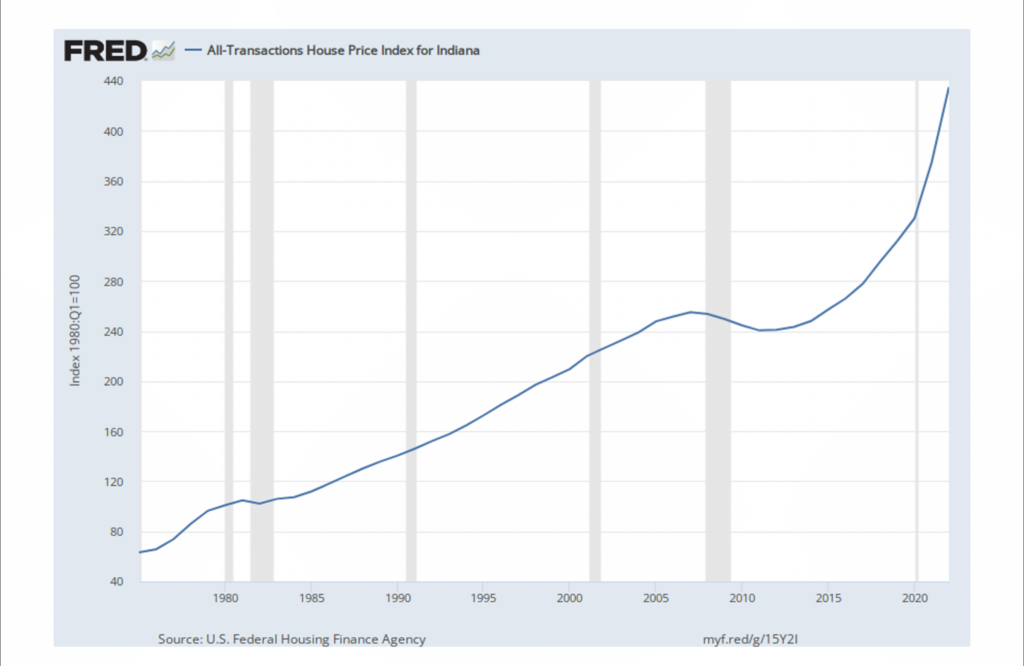
| Written by Drew Kirk of the Kirk Realty Team Despite what many predicted, the housing market continues to hold steady. Sales prices dipped month-over-month during the initial phase of interest rate hikes but have quickly recovered. The days-on-market count has plummeted this year because the demand for housing, particularly in Indiana, continues to outpace supply. Because of this, prices have steadily increased this spring and early summer. That’s all well and good, you might say, but there are rumors of an imminent recession! Surely that will derail the market and cause prices to bottom out. Not according to history! The chart above shows Indiana’s House Price Index for the last 40+ years. During that time, America’s economy experienced 6 different recessions. Those recessions are the grey portions of the chart (i.e. 1980, 1981-1983, 1991, 2002, 2007-2009, and 2020). In the recession during 1981-1983, house prices dipped initially, but fully recovered shortly thereafter. By the recession’s end, home prices were higher than when the recession started. In fact, the only recession period that maintained a year-over-year decrease in home sales prices in Indiana was the recession from 2007-2009: The Housing Market Crash. Fortunately, the forces that caused the housing bubble to burst are not currently at play. CONCLUSIONS: 1. If you are worried about how a possible recession might negatively impact the value of your home, you can relax. Historically, your home’s value will be maintained if not increased should a recession take place. Additionally, the lack of supply of homes has never been greater! That leads many to predict home values will continue to increase regardless of macroeconomic trends. 2. If you are waiting to buy/sell depending on whether or not a recession kicks in, don’t wait! If you are waiting to buy soley based on the hope that prices will go down, there is no indication that a recession will produce more affordable housing in Indy and the metro area. |
